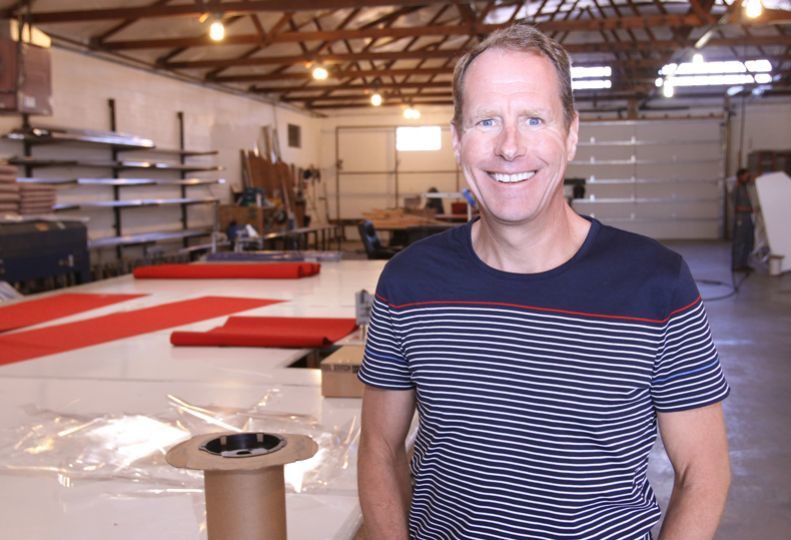
Home » Spokane investors launch Kick-Start III venture-capital round
Spokane investors launch Kick-Start III venture-capital round
$4.25 million fund far larger than previous two combined

March 2, 2017
Tom Simpson, a Spokane entrepreneur and angel-investing fund adviser and organizer, says he’s formed another startup fund, which already has begun investing in emerging companies in the Inland Northwest.
Named after its predecessors, Kick-Start III has secured $4.25 million that Simpson says will be invested in fledgling businesses.
“It’s another pool of capital to invest in early startups,” he says, adding that the latest amount of venture capital was “reached very quickly.”
Kick-Start III already has invested in two companies that he declines to name. He personally invested in Kick-Start III, and all corporate investors are based primarily in Spokane. Most of the funding for the latest source of venture capital came from investors who have been involved in the previous Kick-Start family of funds, Simpson says.
Simpson manages the fund and serves on an advisory committee, which includes former Itron Inc. CFO Steve Helmbrecht and entrepreneur Dan Roark.
He declines to name the other investors in Kick-Start III, but says the fund will seek to make equity investments ranging from $50,000 to $400,000 in about 15 burgeoning startups to help cover initial rounds of capital costs.
The startup fund will target emerging businesses located within a 100-mile radius of Spokane. Simpson says he expects the fund to be fully invested in three to four years at a minimum.
The amount of capital raised for Kick-Start III far exceeds the amount of capital secured for Kick-Start I and Kick-Start II combined. Launched in 2009, Kick-Start I raised $530,000, and Kick-Start II, which launched in 2012, raised $650,000 in venture capital for startups.
“It’s where the greatest funding gap exists for companies based in the Spokane region,” Simpson says. “It’s really good for Spokane, which I still see as a real diamond in the rough for doing business. The Kick-Start funds have filled a real void in our market.”
In addition to providing capital, Kick-Start III’s investors and advisers will provide strategic guidance, mentoring, assistance in filling important positions, introductions to other sources of capital, and merger-and-acquisition advice, he says.
Angel investors are accredited individuals or corporations that provide capital, often in exchange for an equity stake in a young company. Because such investors have a higher risk exposure, they look for a higher return than they would garner from more conventional investments.
They often provide the first outside financing that early-stage companies receive beyond what they can raise from family members or friends while they’re still too immature to seek financing from venture firms or financial institutions.
“Kick-Start I and Kick-Start II now are fully invested in a total of 23 companies since 2010,” says Simpson, who is a co-founder of the Spokane Angel Alliance as well as online retailer etailz Inc. In October, etailz announced it had been acquired by a New York company for $75 million.
The Spokane Angel Alliance, which is operated separate from the Kick-Start funds but has many of the same investors, now has approximately 100 members and has funded 27 companies with more than $9.5 million. Those 27 companies now employ nearly 1,000 people and subsequently have gone on to raise nearly $100 million from other investors, Simpson says.
Kick-Start II’s final investment was in SafeGuard Equipment Inc., a company here featured in the Journal’s Feb. 16 edition. SafeGuard closed on $300,000 in equity financing led by the Spokane Angel Alliance.
Spokane entrepreneurs Brandon Bledsoe, Tim Ledford, and John Thompson caught Simpson’s attention last year at a collegiate business competition with their idea to develop a wristband that would notify users, primarily in electrical and utility occupations, about an imminent threat of electrocution.
When complete, the AC-S wristband, which stands for alternating current sentry guard, will be about the size of a Fitbit, say the three developers. Safeguard has set a target product release date of the middle to the end of summer, the founders say.
The AC-S is being designed to detect electromagnetic radiation waves through the use of an antennae on the exterior of the wristband. The goal is for the AC-S to be able to detect an electrical source from a user’s closest point of contact, they say.
“SafeGuard is a great example of the types of businesses the Kick-Start funds have supported. That company is the poster child for what Kick-Start is intended to accomplish,” Simpson says.
Latest News Banking & Finance Technology
Related Articles
Related Products




_web.jpg?1743064725)